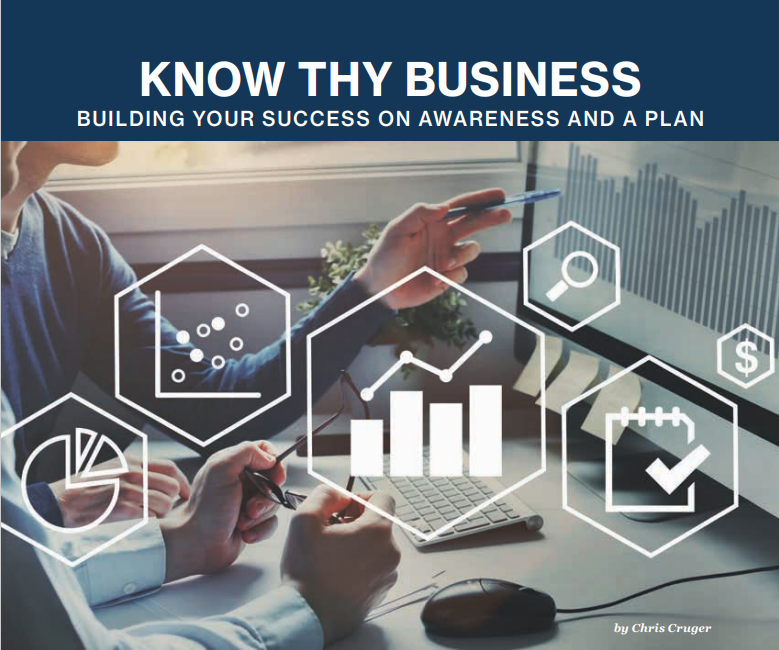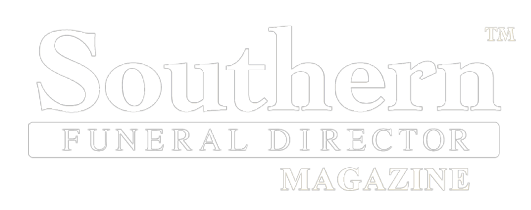(404) 312-6640
KNOW THY BUSINESS BUILDING YOUR SUCCESS ON AWARENESS AND A PLAN
As we are well into 2024, my focus on this article is on planning, awareness and accountability in your business. I believe that awareness, or understanding, is a core principle in business success. Awareness of yourself, your business and your community is what charts the path forward in these turbulent times. The more you understand your present situation, the better prepared you will be to adapt going forward.
A key part of awareness is knowing where we are today and where we want to be in the future. If we understand these things, we can translate them into a road map forward. I think the quote from Warren Buffet says it perfectly: “An idiot with a plan can beat a genius without a plan.”
Don’t get hung up on the length or form of your plan. The goal is to get something on paper, get consensus and get to work. Be prepared to adapt as things change, as they always do.
I don’t think there has ever been a better time to be in this profession – that is, if you’re willing to be a little more progressive than the next person and willing to do the work necessary to serve consumers who look very different today than they did even just five years ago.
We are facing challenges on many different levels and need every tool available. Having a plan and greater awareness is critical to serving our communities in the future. It’s also going to be a key factor in who thrives and who struggles in the years to come. There are many factors out of our control, but knowing our business and the community we serve are things we can control. Time is our greatest commodity, and focusing on the areas we can change is crucial. There is far too much time wasted over things outside our respective control.
I am consistently surprised by the number of owners in our profession who do not stay on top of finances and market trends and have no "plan" for themselves or their business. As previously reported, a recent NFDA study on succession planning shows that less than 26% of owners have a succession plan and about half of owners think they know what their business is worth. Based on our experience at Foresight, I would estimate that 25%-30% of firms have a budget or plan. Whatever the actual figure is, it is deressingly low.
If you already have a plan (that is written down), great! Now the trick is to not be one of the more than 50% who fail because of failure to execute. The single greatest contributor to failure is lack of accountability. To have proper accountability, there also must be communication and buy-in from you entire team. As appropriate, you need to include all key members of your team in that process.
The first step is determining what success looks like to you. It can be rooted in your core values, number of families served, your community or simple financial targets. Likely, it will involve all of those and more. It's a matter of understanding that balance. Once you know what that is, the next step is to determine where you are today.
I believe one of the best ways to establish that is through a thorough and objective SWOT analysis (strengths, weaknesses, opportunities, threats). There are plenty of available resources online to guide you through this process and teach you how to turn those learnings into something actionable. The challenge is being willing to accept feedback from your key stakeholders and then act. Failure to act or execute can be more damaging than doing nothing at all. Sometimes using a third party to aid in this process can be helpful.
As you go through the process of evaluating your strengths, weaknesses, opportunities and threats, I encourage you to be objective. This is not an easy process, but it will pay huge dividends. It's very easy to fall into a routine and do things the way they've always been done. Your willingness to be objective and aware will give you an advantage. We may not always like that what we hear, but it's what you do with the information that matters. Here are a few thoughts and questions around awareness:
AWARENESS OF SELF
Having an awareness of what is important to you is critical. It is also important to understand how long you want to continue doing this. What will you do in retirement? Are you willing to change? Are there areas in which you need help?
AWARENESS OF BUSINESS
Having a command of what is happening operationally, financially and surrounding your business is simply good business. Understanding the finance and accounting of your business is critical. That includes knowing the trends of your business and knowing what the business does well, as well as areas for improvement. Is your staff happy? Are they paid competitively? Know your key metrics for success and stay on top of them.
Here’s a quick starter list (three to five years’ history is helpful):
• Market share by month/year, as far back as you can go; tracked against direct competitors
• Call volume broken between casketed, non-casketed and ship or trade cases
• Revenue • Case average casketed versus non-casketed • Preneed current preneed balance (number of at-need cases coming out of backlog versus new contracts sold)
• Monthly expenses What are your total monthly expenses?
• Cash and accounts receivable balance
• Total debt and terms
You will need to be organized and invest some time in pulling this information together. While it might seem like a pain in the rear, this information and knowledge will contribute greatly to your future
AWARENESS OF COMMUNITY
For almost 30 years, I have listened to many in our pro fession proclaim that they know their families or their com munities. If you haven’t seen that consumer change in the last five to 10 years, then you are rare. The shift in consumer attitudes and behavior has impacted everyone.
How are you working to address those shifts? How has your competitive landscape changed and what are you doing to address the changes?
PULLING A PLAN TOGETHER
Being mindful of the realities we face in life and business is a great way to be prepared for the future. With the chal lenges ahead, we simply cannot afford to stick our heads in the sand. We must adapt to the consumer, our communities and the workforce or risk being left behind.
If we accept that having a plan gives you a strategic ad vantage, why wouldn’t you have one? It doesn’t have to be fancy or overly long, but it does have to have some thought and accountability. I do believe you should have a detailed budget that tries to contemplate the needs of the business re alistically. Being better prepared today will lead to smoother sailing down the road.
If you need some help pulling your plan or budget togeth er, give NFDA or somebody here at Foresight a call. We would be happy to help you. The goal is to set up yourself and your business for success. Knowing your realities and being real istic with your budgeting and planning should lead to a great start of the year.






Comments